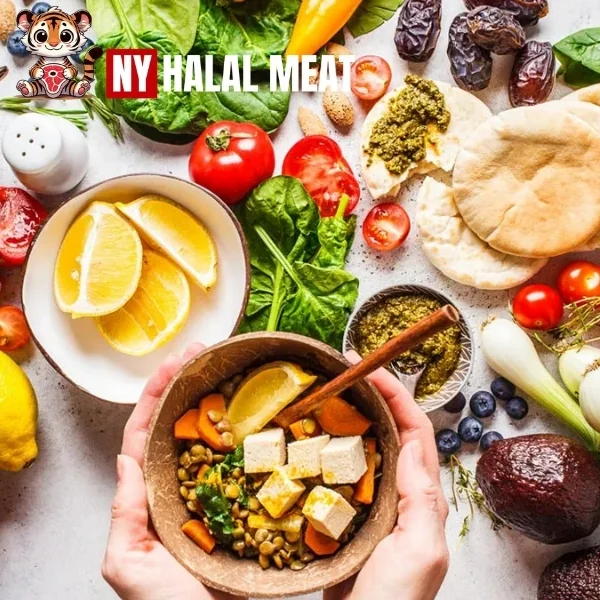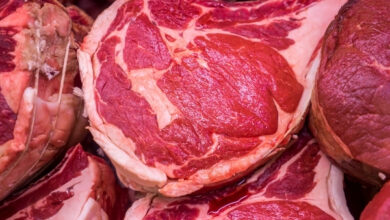
Is Being a Vegetarian Harmful to Your Body?
Nutrient Deficiencies in a Vegetarian Diet
One of the most significant concerns for vegetarians is the risk of nutrient deficiencies. While plant-based foods are packed with vitamins, minerals, and fiber, they may lack certain essential nutrients that are more abundant in animal-based products. Here are some key nutrients that vegetarians should pay attention to:
1. Vitamin B12
Vitamin B12 plays a crucial role in nerve function, red blood cell production, and DNA synthesis. Unfortunately, it is primarily found in animal products such as meat, eggs, and dairy. Vegetarians may be at risk for B12 deficiency, which can lead to symptoms such as fatigue, anemia, nerve damage, and mood disturbances. To avoid this, vegetarians should consider fortified foods or supplements to meet their B12 requirements.
2. Iron
Iron is essential for producing hemoglobin, which helps carry oxygen in the blood. While iron is found in plant foods, it’s in the form of non-heme iron, which is not absorbed as efficiently as the heme iron found in meat. A lack of adequate iron intake can lead to iron deficiency anemia, causing fatigue, weakness, and immune issues. To enhance iron absorption, vegetarians should consume iron-rich foods such as lentils, spinach, and beans along with vitamin C-rich foods, like citrus fruits, to boost iron uptake.
3. Omega-3 Fatty Acids
Omega-3 fatty acids are critical for brain health, reducing inflammation, and supporting heart health. While these essential fats are plentiful in fatty fish, they are less readily available in vegetarian diets. Plant sources of omega-3s, such as flaxseeds, chia seeds, and walnuts, provide ALA (alpha-linolenic acid), but this form needs to be converted to EPA and DHA, the more beneficial forms, which the body does inefficiently. Vegetarians may consider taking algae-based omega-3 supplements to ensure they get enough of these essential fats.
Risks of Inadequate Protein Intake
Protein is vital for building and repairing tissues, supporting immune function, and maintaining muscle mass. While animal products are a rich source of complete proteins, vegetarians must pay attention to getting enough protein from plant-based sources. Plant proteins are often incomplete, meaning they may lack one or more of the essential amino acids required by the body.
To avoid protein deficiencies, vegetarians should consume a variety of protein-rich foods such as beans, lentils, quinoa, tofu, and tempeh. These foods provide the necessary amino acids when combined properly, ensuring that vegetarians maintain healthy muscle mass and immune function.
Overconsumption of Processed Foods
Although vegetarian diets are often associated with health benefits, they can also lead to the overconsumption of processed foods. Many vegetarian products, such as meat substitutes and convenience foods, are heavily processed and may contain high levels of sodium, unhealthy fats, and added sugars. Regularly consuming these processed foods can contribute to weight gain, increased cholesterol, and other health issues.
To avoid these pitfalls, vegetarians should focus on whole, nutrient-dense foods like fresh vegetables, fruits, legumes, and whole grains. Minimizing the intake of processed vegetarian products will help maintain a balanced and healthy diet.
Impact on Bone Health
Another potential risk of a vegetarian diet is insufficient calcium and vitamin D, which are crucial for strong bones. Dairy products, a common source of calcium, are often excluded in vegetarian diets. Without proper calcium intake, vegetarians may be at risk of weakened bones and conditions like osteoporosis.
Vegetarians can obtain calcium from plant-based sources such as fortified plant milks, leafy greens, and tofu. Since vitamin D helps with calcium absorption, vegetarians should consider fortified foods or supplements to ensure they’re getting adequate levels of both calcium and vitamin D.
How to Make a Vegetarian Diet Healthier
While there are potential risks associated with a vegetarian diet, these can be managed with careful planning and thoughtful food choices. Here are some ways to make your vegetarian diet healthier:
- Incorporate a Variety of Protein Sources: Include a wide range of plant-based proteins, such as lentils, beans, tofu, quinoa, and tempeh, to ensure you get all essential amino acids.
- Supplement Key Nutrients: Consider supplementing with vitamin B12, omega-3s, and vitamin D if needed.
- Focus on Whole, Unprocessed Foods: Choose fresh, minimally processed fruits, vegetables, and whole grains to maximize nutrient intake and avoid unhealthy additives.
- Pay Attention to Iron and Calcium: Include iron-rich foods like lentils, beans, and leafy greens, as well as calcium-rich plant-based alternatives such as fortified plant milks.
- Stay Hydrated: Drink plenty of water, especially when consuming a high-fiber vegetarian diet, to support digestion and overall health.
Conclusion

Being a vegetarian can be a healthy and rewarding lifestyle choice when approached correctly. While there are some risks associated with nutrient deficiencies and overconsumption of processed foods, these can be mitigated with proper planning and mindful food choices. By focusing on a variety of whole, nutrient-rich foods and supplementing where necessary, vegetarians can enjoy the benefits of a plant-based diet while maintaining their health and wellbeing. Always consult with a healthcare provider or nutritionist to ensure that your vegetarian diet is balanced and tailored to your specific needs.





